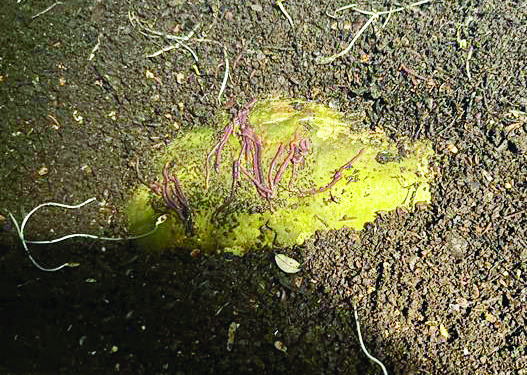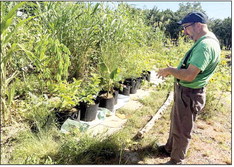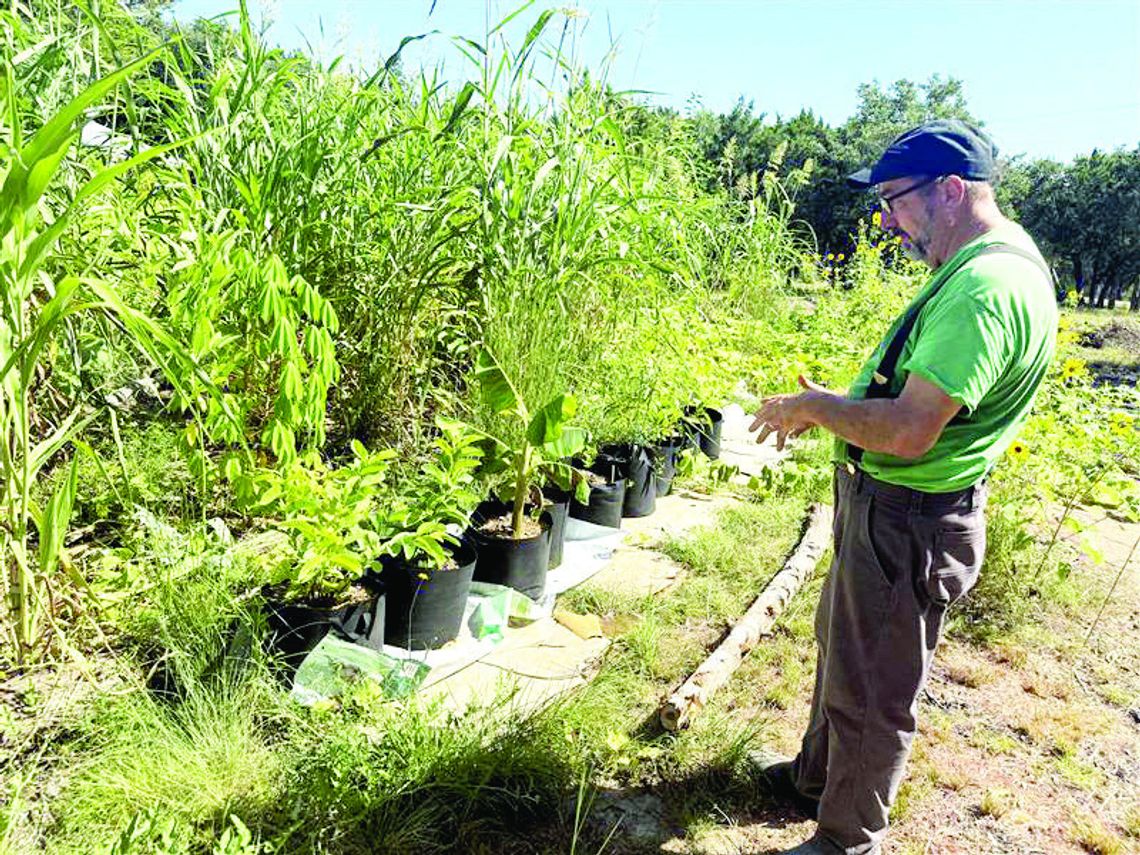Rene and Magoth Schmidt live a self-sustainable life in the quiet town of Lakehills. They organically grow a variety of plants and produce while also maintaining their worm farm.
The Schmidts own Green Earth Worm Farms, where they sell worm castings, composting worms, farm kits and organic biochar.
Rene Schmidt became inspired more than a decade ago while managing a restaurant and trying to turn his life around.
“I read an article in the Houston Chronicle about 11 years ago, during a time where I was trying to get healthy. I had found an article about how great raising worms was and how it was going to be a business for the future,” Rene Schmidt said.
“I looked at it as something to do with my spare time. I started in my garage and it got me hooked. It had me thinking about life post-retirement. It’s my little paradise,” he said.
“I’ve been learning a lot about agroforestry. I want to show people what you can do with it. It’s an amazing, more natural way to garden,” he added.
Agroforestry is a farming technique where a variety of trees, shrubs and crops are intentionally grown on the same land to increase output and biodiversity. It maintains and improves agricultural sustainability by providing food security, improving soil health and creating a more stable climate. Trees soak up carbon dioxide while providing shade for surrounding plants in the extreme Texas heat.
“I want people to be able to come here and see this and say, ‘Hey, I can do something like this on my property.’ Plants get filtered sunlight, but they need shade too. Plants need full sun but they don’t need San Antonio full sun. The sun here will kill a lot of things,” Schmidt said.
He also practices “chop and drop,” a gardening method where plants are cut down and dropped to decompose, retaining moisture and improving soil health organically.
“The main thing that I’m growing right now is supporting species to chop and drop because the soil here … this was rock and now it’s soil,” he said.
“This is nature, not man telling you what to do. They process so many fertilizers that don’t work and don’t lead to nutritious food. I used to believe in them myself. Plants need about 40 natural substances, everything including phosphorus, magnesium, etc.,” Schmidt said.
The Schmidts plant and use all their methods with purpose, maximizing their resources organically.
“When I harvest all the leftover stuff, I spread it around, which gives the soil life and sustains nutrition. Chicken manure and worm castings are great together to grow plants organically. I age chicken manure about six months and mix it with the worm castings. That’s what I use as soil,” Schmidt said.
Their garden includes pollinator plants, tropical and semi-tropical varieties, such as papayas, limes, strawberries, watermelon, corn and squash. These plants bring beneficial insects, butterflies, bees and even squirrels.
“Squirrels and I have a competition on who’s going to come get the melons first. They make a hole and eat the inside and if there’s several, they’ll make a hole in each one,” Schmidt said.
The other half of the farm is dedicated to worms. The Schmidts feed their worms ripe produce donated by local markets and horse manure.
The composting process begins with leaves collected from around the farm, mixed with chicken and horse manure.
“I keep piling them up and layer them until it’s about three feet tall. I’ll heat it up to 160 degrees Fahrenheit. Four days later I’ll mix it and let it get up to 150 to 160 degrees. In the beginning I turn it every three to four days, at least four to five times, because it starts the decaying process. The micros heat, and after a month they start dying and other types of micros take over. It traps oxygen and erosion in the pile,” Schmidt said.
He advises keeping worms in a well-lit, moist environment — not too bright and not too hot. They thrive in darkness, where light won’t damage them. The most ideal temperature is about 75 degrees, but they can live in conditions from 50 to 90 degrees.
Worms are also fed cardboard and newspaper, which they tear up. They must be covered and shaded for best results.
Schmidt even built a mechanical machine to separate worm castings from worm eggs. The hand-cranked device separates large and small batches.
He stressed the importance of moisture when sifting.
“You put the castings and let them dry till it’s about 60%, not usually more than that. If it’s 80%, you take some soil and squeeze and you get about two or three drops and that’s how I can see how moisturized it is. If you sift it at 80%, it just becomes little balls like pellets,” Schmidt said.
Green Earth Worm Farms’ main product is worm castings, sold in 5- to 20-pound bags. Customers may call in advance to buy.
The Schmidts sell at The Garden Center on Bandera Road from 10 a.m. to 3 p.m. and at the Bandera Market on Thursdaysfrom9a.m.to1p.m.
Farmers often depend on them to cultivate crops, buying in loads of 200 to 400 pounds. Customers come from across Texas — and even outside the country — to purchase products and learn about the Schmidts’ processes.
The couple hopes to expand their farm to welcome visitors, offering education about worm farming and organic gardening.
Green Earth Worm Farms products are also available online at redwigglerisland. com, along with a blog and more information.


Fresh vegetables and herbs are harvested daily at Bandera Natural Farms, where worms play a vital role in enriching the soil and supporting healthy crops. BULLETIN PHOTO/ Tracy Thayer





.png)
